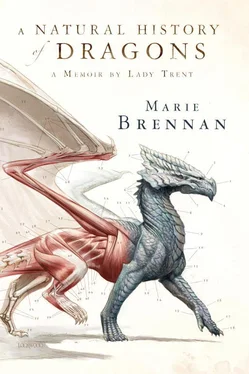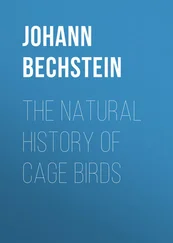The panniers on Ledinsky’s horses were not enough to hold everything we wished to bring. But he had not brought horses for Dagmira and Iljish, either; they would have to ride donkeys, and so we might as well bring a third for the remainder of our baggage. Sorting all of this took the better part of what remained of the day, with the stolnik frowning impatiently over us. When it became apparent that we would not be able to make any distance worth mentioning, Lord Hilford insisted we stay in Drustanev one more night.
Jacob stepped aside with the earl and asked quietly, “What will that mean for our situation here?”
Lord Hilford shrugged, looking philosophical. “We may as well sleep, if we can. Mazhustin was quite adamant that we would not set even a toe beyond our door tonight; he and a few of his fellows will keep their own watch. They’ll do a better job of it than we could, anyway.”
“ If none of them decide they’d rather have us gone.”
“The mayor is a fair-minded man,” Lord Hilford said, unperturbed. “He admitted, when I put it to him, that the local children dare each other to visit those ruins all the time. They may not want to consider that Astimir would fake such a thing, being that he’s one of their own—but if this is a trick, then Mazhustin is determined to pillory whoever is responsible.”
With that, we had to be content. And it seemed to suffice, at least for one night, for when we rose the next morning, there were no new disturbances to report. So it was, with a feeling of vindication, that we rode to meet Iosif Abramovich Khirzoff.
Iosif Abramovich Khirzoff — Gaetano Rossi — Opinions of Jindrik Gritelkin
The term “hunting lodge” had led me to expect something small and on the rustic side: the sort of place a gentleman or peer might retire for a week or two of shooting before returning to the comforts of a less isolated residence.
Whatever else might be said of Khirzoff’s lodge, it was not small.
The fence that surrounded it was no wattle-and-daub affair, but sturdy planks of wood, with a shingled roof over the gateway, which had doors sized to admit both carts and people on foot. For our distinguished party, the larger was unbarred and swung open, admitting us to the spacious courtyard beyond.
Above us reared a three-story dwelling of roughly dressed stone walls that, as Mr. Wilker muttered under his breath, might have been dropped there by a dragon migrating from Bulskevo. I had little eye for such things, but the crude scallops of decorative woodwork along the edges of the roof and the octagonal bay at one end certainly resembled nothing I had seen in Drustanev. The place would have been charmingly rustic, were it not for an unpleasant smell in the air. I hoped the odor did not originate in the kitchens, or the promised feast would be difficult to choke down.
Someone must have been keeping watch for our arrival, as a man stood on the steps of the lodge, ready to greet us. It took no great deductive mind to guess that this was Khirzoff himself. His knee-length coat was of imported silk, and held more embroidery than all of his followers’ clothing combined. The man beneath all that splendor I judged to be about fifty or fifty-five, with a beard gone mostly grey springing magnificently from his jaw.
He remained at his post while we dismounted from our horses, but spread his arms wide and said in a voice that boomed across the courtyard, “Welcome, honored guests, welcome!”
To my surprise, he spoke in Chiavoran. That country’s favorable trade position in Anthiope has made its language known to many, of course, and all within our party spoke it more fluently than we did Vystrani. (Also, as I later learned, few of the boyars of Vystrana actually speak the language of their own subjects; they hold instead to Bulskoi, the language of the tsar, relying on underlings to communicate with the locals, and in this Khirzoff was no exception.) But I suspected the reason for that choice stood at his right hand: a man whose olive complexion and manner of dress marked him as Chiavoran himself. This must be his scholar friend.
Taking his cue from this, the earl returned the greeting in kind. “We are honored to be welcomed in your home, Iosif Abramovich,” Lord Hilford said, climbing the stairs. He could not suppress a wince as he went; even with the fine tent Ledinsky supplied, the journey had taken its toll on the man’s aching joints. “I am Maxwell Oscott, Earl of Hilford.” He introduced each of us in turn. I suffered Khirzoff to kiss both of my cheeks in the Bulskoi manner, wishing he had forgone the friendly gesture of greeting us as we arrived in favor of the more civilized Scirling practice of allowing guests to freshen themselves briefly first. There was sap in my hair where a tree branch had knocked my bonnet askew.
Our host then introduced us to his friend. Gaetano Rossi bowed over my hand with perfunctory courtesy, for which I was grateful; my mind had chosen the most inopportune moment to remind me of my facetious comments to Jacob back home, about Chiavoran dancing girls.
“But come, it is late,” Khirzoff said, when the introductions were done. “I have servants waiting for you inside; you may send your peasants on their way.”
It was, I think, the dismissive manner in which he delivered those words that raised my hackles. Dagmira might have been a terrible excuse for a lady’s maid, but I was suddenly determined not to be parted from her. Had anyone demanded a rationale from me, I would have said I saw no sign there were any other women at this hunting lodge. Khirzoff was a widower, according to Ledinsky, with two sons both grown and trying to curry favor in the tsar’s court, and of course he could not possibly have fetched anyone in time for our arrival. If I was going to have a ham-handed Vystrani woman doing up my buttons, at least it would be the ham-handed woman I knew, rather than a stranger.
But my response was not rational. I simply did not like the fact that he was attempting to separate us from Dagmira and Iljish. I only barely managed to avoid saying so outright, which would have been unpardonably rude. I resorted instead to a silly caricature of some women I had known at home. “Oh, I could not possibly be without Dagmara,” I said, deliberately erring on her name. “She’s been my only companion all this time; we’ve come to know each other quite well. I would feel quite lost without her. And of course her brother must stay, too…” I let that trail off, gesturing vaguely in Iljish’s direction in a manner calculated to suggest that I had forgotten his name entirely.
(Oddly, although I have grown more liberal-minded with time, as my travels brought me into contact with many strangenesses to which I had no choice but to adapt, on this one point I have instead grown more inflexible. As a young woman I was willing to be thought quite brainless when it suited my purposes, for that was, all too often, the assumption of those around me. The more I encountered such assumptions, though, the less patience I had for them, and the more assertive—some would say “unpleasantly opinionated”—I became. At that tender age, however, I had no compunctions about behaving in a manner my current self would smack silly.)
Jacob gave me a peculiar look, which I hoped the boyar did not see. What reports the man had of me I did not know, but any quick summary of my activities in Vystrana could well make me look fluff-brained. (The harmless sort of fluff-brained, I mean; not the sort I actually was .) I thought I saw Khirzoff’s lip curl in disdain as he looked over our two companions, but the concealing mass of his beard and mustache made it hard to be sure. “Very well,” he said at last, not quite as graciously. “Rusha will find a place for them.”
Читать дальше












